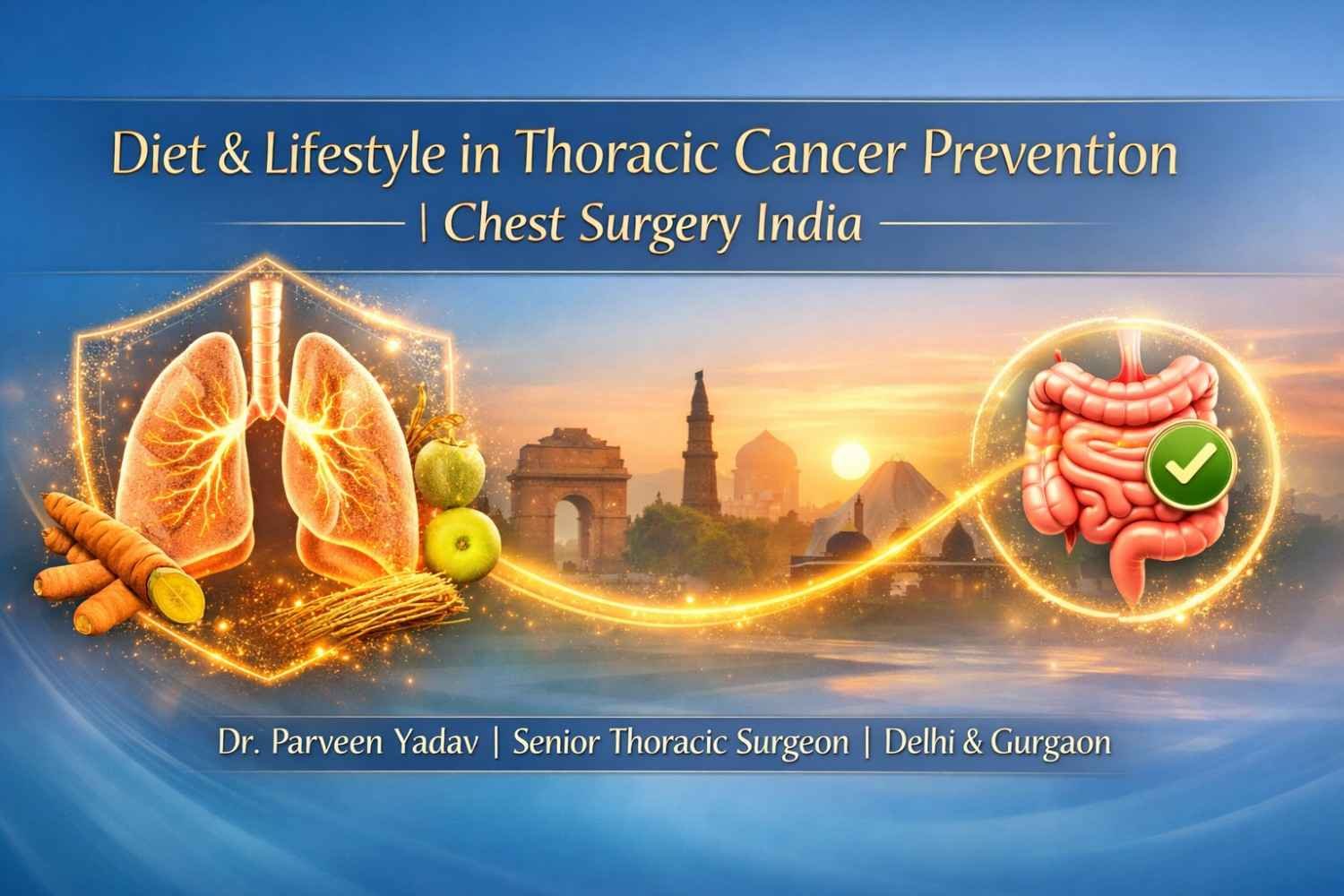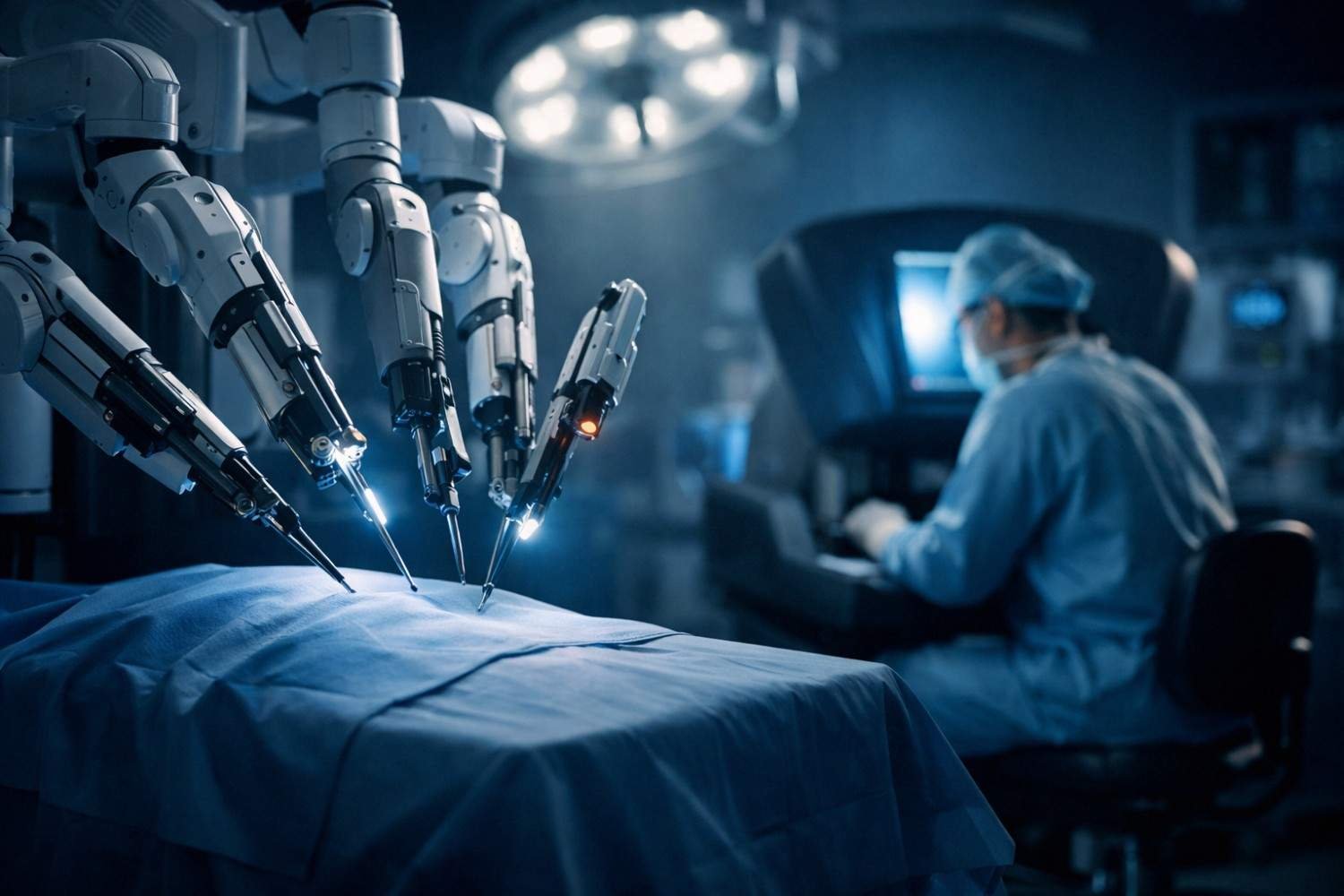

If you've ever felt a burning sensation rising from your stomach into your chest after a spicy meal, you're not alone. Most people experience heartburn at some point. But when this discomfort becomes a daily visitor, it might be more than just a simple indigestion problem.
Many individuals suffer silently from chronic acid reflux or GERD (Gastroesophageal Reflux Disease), brushing off their symptoms as minor. But here's the critical question that must be addressed: Can GERD cause esophageal cancer?
This blog dives deep into that very concern. As a cancer specialist, I've seen firsthand how early action can change lives. In this article, I'll explain the link between GERD and esophageal cancer, how to spot warning signs, ways to reduce your risk, and when it's time to see a specialist.
Before we talk about the risk of cancer, let's understand what acid reflux and GERD actually are.
While occasional acid reflux is normal, chronic GERD is not. Over time, it can lead to severe complications if not managed properly.
These symptoms might not seem alarming at first. But when they happen frequently, they can cause long-term damage to the esophagus and increase your cancer risk.
Chronic GERD doesn't just affect comfort—it affects health. Repeated exposure to stomach acid can irritate and damage the lining of your esophagus. This damage increases the chances of developing a condition called Barrett's esophagus, which is considered a precancerous stage.
That's why understanding chronic GERD complications is so important—not just for comfort, but for your long-term health and safety.
The short answer is—yes, it can.
While not everyone with GERD will develop cancer, long-term and untreated GERD can significantly increase your risk. Here's how:
When acid reflux happens frequently, the stomach acid irritates and damages the esophageal lining. Over time, this damage can lead to a condition called Barrett's esophagus. In Barrett's esophagus, the usual lining of the esophagus varies to resemble the lining of the intestine—a clear warning sign of potential cancer risk.
Barrett's esophagus is considered a precancerous condition. Although not everyone with Barrett's will develop cancer, it does increase the risk of developing a type of esophageal cancer called esophageal adenocarcinoma.
These numbers may seem small, but for individuals with long-term GERD, the risk adds up over time—especially if lifestyle changes or treatment are ignored.
Yes—chronic GERD can lead to esophageal cancer, mainly through Barrett's esophagus. It's not an immediate jump from heartburn to cancer but a slow process of ongoing damage that can be prevented with the right care.
Many people ignore acid reflux for years, brushing it off with over-the-counter antacids. But when symptoms start changing or becoming more intense, it's a sign to pay attention. Early warning symptoms of esophageal cancer can be subtle—but they're important to catch.
If you experience any of the following, it's time to consult a specialist:
Many patients come to us when symptoms have already worsened. By then, the disease may have advanced. The biggest risk factor isn't just GERD—it's ignoring it.
Regular check-ups, especially if you've had GERD for several years, can help detect changes like Barrett's esophagus before they turn cancerous.
The good news is that esophageal cancer linked to GERD is largely preventable—if you act early. By making smart lifestyle changes and seeking timely medical help, you can lower your risk and protect your health.
These changes may sound miniature, but they can make a huge difference in your symptoms and long-term health.
If lifestyle changes aren't enough, medical treatments can offer effective relief and protection:
For high-risk patients (especially those with Barrett's esophagus), annual or biennial endoscopies can detect precancerous changes early—before they become life-threatening.
Early detection doesn't just save lives—it makes treatment easier and more successful.
In my experience as a cancer specialist at Artemis Hospital, Gurgaon, I have seen many patients who ignored their reflux symptoms for years—until it was too late. On the other hand, I've also seen the power of early diagnosis and proper treatment completely change the outcome.
Let me share what I often tell my patients:
GERD might not seem dangerous at first. Many patients come in saying, "It's just heartburn; I've had it for years." But when left untreated, that burning can silently damage your esophagus over time. It's not about how bad it feels—it's about how long it lasts.
If you have had acid reflux or heartburn for more than 6 months, or if your symptoms are getting worse, it's time to see a GERD specialist. If you're in or around Gurgaon, feel free to book a consultation with me. Together, we can build a plan that protects your long-term health.
Living with acid reflux or GERD might seem like a minor inconvenience. But if you've read this far, you now understand the potential risks it can carry—especially when left untreated. The link between GERD and esophageal cancer is real, but the good news is it's preventable with the right care.
Here's what you should remember:
If chronic acid reflux is disrupting your life, don't ignore it or rely on temporary fixes. Schedule a consultation at Artemis Hospital, Gurgaon, and let's work together to protect your health before small symptoms become serious problems.
Have questions? Worried about your risk? Ready for a check-up?
Dr. Parveen Yadav and his team are here to help. Book your appointment today and take control of your digestive and esophageal health.

18+ Yrs Exp | 5,700+ Thoracic & Robotic Cancer Surgeries
Dr. Parveen Yadav is a Director and Senior Consultant in Thoracic and Surgical Oncology, specializing in minimally invasive and robotic lung and esophageal surgeries, with advanced training from AIIMS and Tata Memorial Hospital.
View Full Profile Pain After Thoracic Surgery: Tips for Smooth Recovery
Pain After Thoracic Surgery: Tips for Smooth Recovery
 Diet & Lifestyle for Thoracic Cancer Prevention | Dr. Parveen Yadav
Diet & Lifestyle for Thoracic Cancer Prevention | Dr. Parveen Yadav
 Robotic Thoracic Surgery: How Da Vinci Technology is Revolutionizing Chest Procedures
Robotic Thoracic Surgery: How Da Vinci Technology is Revolutionizing Chest Procedures
Struggling with pain after chest surgery? Dr. Parveen Yadav shares expert recovery tips, causes of shoulder pain, PTPS signs, and what your discharge sheet won't tell you.
Discover how diet, breathing exercises & daily habits help prevent and recover from thoracic cancer. Expert insights from Dr. Parveen Yadav, Chest Surgery India
Discover how Da Vinci robotic surgery is transforming chest procedures in Gurgaon. Less pain, faster recovery & expert care by a certified thoracic surgeon
Copyright 2026 © Dr .Parveen Yadav all rights reserved.
Proudly Scaled by Public Media Solution!